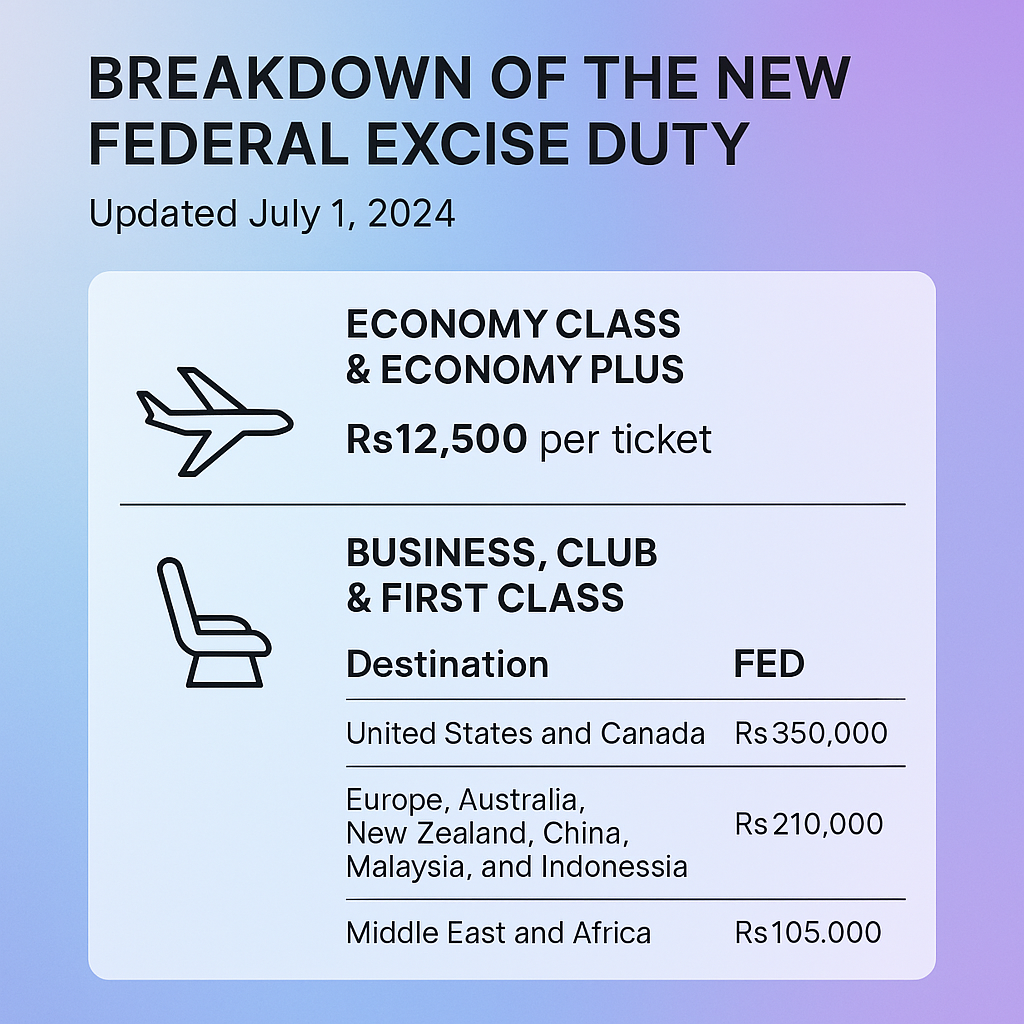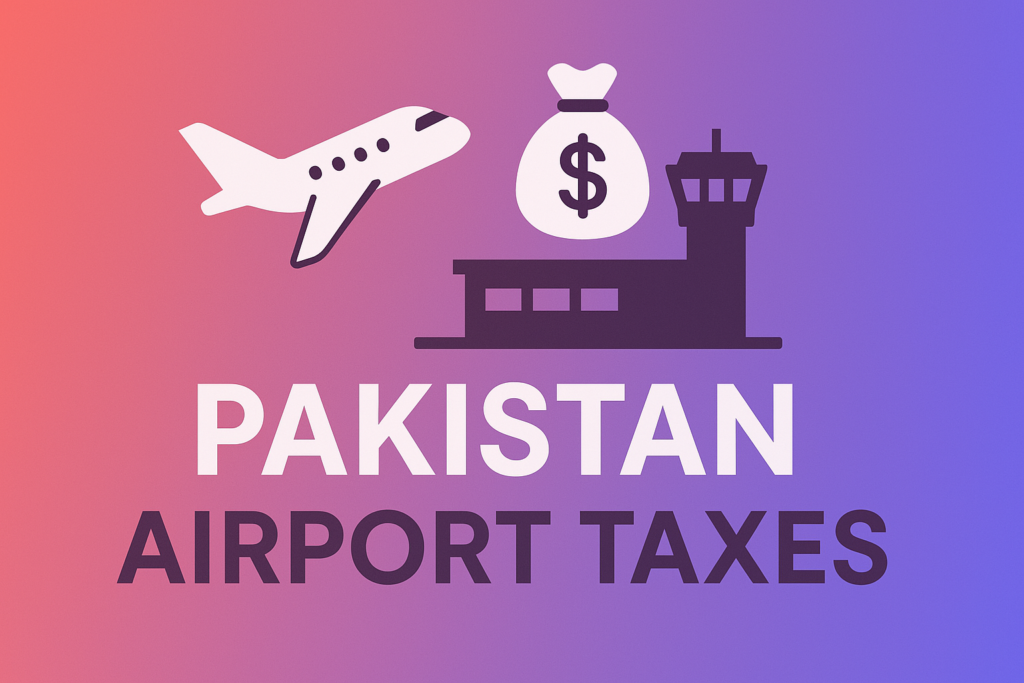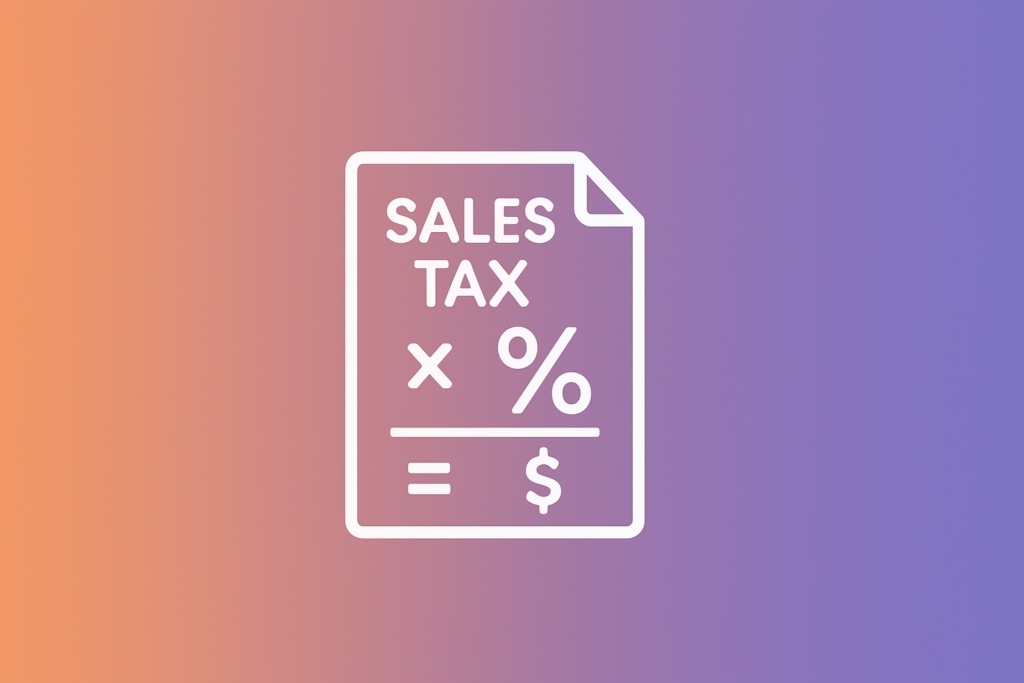If you’re planning to fly internationally from Pakistan in 2025, I’ve got something crucial to share with you.
Hey, I’m Shahzad Ahmad Mirza, and in this post, I’ll break down everything you need to know about airport tax in Pakistan, especially after the recent shake-ups in the Federal Excise Duty (FED).
And listen — if you’ve ever asked “Why are airline tickets getting insanely expensive?”… you’re in the right place.
Let’s get into it.
What is Airport Tax in Pakistan and Why You Should Care
Before you zone out thinking “ugh, taxes,” hear me out.
Airport tax in Pakistan refers to the collection of government-imposed fees you pay on top of your actual flight fare. These are commonly known as Federal Excise Duty (FED), and they’ve skyrocketed in 2024-25.
Now, why should you care? Because whether you’re a frequent flyer or someone planning that once-in-a-year Umrah trip — you’re paying this tax.
And guess what? It’s not just a few hundred rupees anymore. It could be Rs350,000 per ticket depending on where and how you fly.
In short: understanding this can help you save money, plan better, and maybe even avoid unnecessary costs.
Check out the official tax policy update here.
Breakdown of the New Federal Excise Duty (FED) – Updated July 1, 2024
So here’s the spicy stuff.
From July 1, 2024, the Pakistani government introduced new rates for international flight taxes. These are categorized based on travel class and destination.
Let me walk you through it.

Economy Class & Economy Plus
Traveling economy? It’s a flat Rs12,500 FED per international ticket.
That’s right, no matter if you’re heading to Dubai, Malaysia, or London — it’s the same charge. You’ll spot this on your ticket as “departure fee” or “FED”.
Check source: ARY News.
💡 Pro Tip: If you’re flying economy and comparing airlines, don’t just look at the base fare. Factor in this tax!
Business, Club & First Class
Here’s where the numbers go bonkers.
The government has introduced destination-based FED for premium class tickets:
- To USA or Canada? Boom – Rs350,000 tax per ticket.
- To Europe, Australia, New Zealand, China, Malaysia, Indonesia? That’s Rs210,000.
- To the Middle East or Africa? You’re looking at Rs105,000.
Here’s the source from Tribune Pakistan.
Let that sink in. If you thought a business class ticket was pricey before — you’re now adding a house-renovation-worth tax on top.
How Pakistan’s Airport Tax Compares Globally
This section isn’t just nerdy — it’s eye-opening.
Let’s benchmark Pakistan’s taxes against countries like the UK and the UAE.
United Kingdom – Air Passenger Duty (APD)
The UK charges an Air Passenger Duty (APD) based on flight distance and class:
- Long-haul economy = £91 (~Rs32,000)
- Business/First Class = £200 (~Rs71,000)
Compare that to Pakistan’s Rs350,000 FED? That’s 5x higher.
UAE – Departure Fees
In Dubai or Abu Dhabi, departure fees are usually included in your ticket and hover around AED 30–50, which is Rs2,300–Rs3,800.
Conclusion? Pakistan is now one of the most expensive countries for international air travel taxes — especially if you’re flying business class.
Why Did the Government Increase Airport Taxes?
I get this question a lot during my seminars at Next Age Solutions and Designs Valley.
So here’s the reality:
The tax hike is not random.
Pakistan needs more revenue. With inflation soaring, external debt piling, and fewer people filing income taxes, the government is targeting high-end spending, like premium flight tickets.
Targeting the Affluent Class
The idea is simple: If you can afford a Rs1 million ticket, you can probably handle another Rs350,000 in taxes. This approach is aimed at wealth redistribution, though it’s stirring serious debate.
Check this breakdown from One Mile at a Time.
What This Means for Frequent Flyers and International Travelers
You, my friend, need to plan smarter now more than ever.
Let me show you how:
1. Understand Your Travel Class
Flying economy? Awesome — you’ll only pay Rs12,500 extra.
Business class? Check your destination — your tax could triple your total cost.
2. Compare Total Ticket Prices
Use aggregators like Skyscanner, Momondo, or Google Flights to check final ticket prices including taxes.
3. Consider Regional Alternatives
If you’re close to a border, you could compare flying out of the UAE, Qatar, or Turkey, where airport taxes are significantly lower.
How to See FED Charges on Your Ticket
Want to verify what you’re paying?
Here’s a step-by-step guide to locate the FED on your flight ticket:
- Book your international flight through a reputable airline.
- Look at your ticket breakdown before payment — usually under “Taxes and Fees”.
- You’ll see an entry like “PK FED INTL” or “Federal Excise Duty” with an amount.
Still not sure? Call your airline and ask them to itemize your invoice.
Pro tip? Use frequent flyer programs and travel portals that let you compare ticket tax breakdowns.
Pro Traveler Hacks to Beat High Pakistan Airport Taxes
Let’s be honest: you don’t just want to understand the taxes — you want to save money.
Here’s what I personally recommend:
Use Stopovers Strategically
Instead of flying direct from Pakistan, consider routing through cities with lower departure taxes, like Doha, Muscat, or Istanbul. It may save you tens of thousands in FED.
Opt for Economy Plus
You still get a little extra legroom, but stay within the Rs12,500 FED slab. Many airlines offer this sneaky in-between class.
Pay with a Travel Credit Card
Some travel cards offer cashback or points for taxes and fees. Look into Pakistani banks with international travel rewards programs — trust me, they help!
How Airlines Are Responding to Pakistan’s New Airport Tax Policy
If you’re wondering whether it’s just you freaking out over the new airport charges in Pakistan — it’s not. The airlines are scrambling too.
These steep departure taxes have thrown a wrench in the usual pricing and booking trends, especially for premium class travel.
Airline Adjustments in 2025:
- Reducing Business Class Promotions – Since the taxes outweigh ticket profits, airlines are cutting down on luxury deals from Pakistan.
- Introducing Hybrid Fare Classes – Some airlines have started offering semi-premium economy with just enough perks to dodge premium-class tax brackets.
- Increasing Connectivity from Neighboring Airports – Airlines are now focusing more on transit hubs like Doha, Istanbul, Muscat, and Dubai to encourage travelers to book alternative routes.
Why? Because taxes like Rs350,000 on a single business-class ticket are making people reconsider their departure points.
👉 This means you, as a traveler, have more opportunities to game the system. More on that below.
How to Make Smart Travel Decisions with Pakistan’s Updated Airfare Taxes
Let’s get practical here.
Here’s my personal travel planning system I use for clients and trainees at Next Age Solutions. It’s a proven method to minimize the hit from Pakistan’s high airline ticket fees.
Step 1: Research Your Destination Tax Bracket
First, categorize your travel based on current FED slabs:
- North America: Rs350,000
- Europe, Australia, Malaysia: Rs210,000
- Middle East & Africa: Rs105,000
- Economy Class (all destinations): Rs12,500
Don’t get caught off-guard at the checkout page!
Here’s the official list of FED changes again in case you missed it.
Step 2: Use Multi-city Flight Search Tools
Websites like Google Flights, Kiwi.com, or Skyscanner help you compare flight segments separately. This is key to mixing and matching airlines to reduce your taxes.
Step 3: Pay with Reward-Back Travel Cards
Most Pakistani banks like UBL, Standard Chartered, and Faysal Bank offer credit cards with international travel cashback or lounge access.
Use them to pay taxes and earn something back — even if it’s just a free airport meal or lounge pass, you’ll thank yourself later.
FAQs on Pakistan Airport Tax & Air Travel Charges
These are the real questions I get from travelers, students, and clients all the time.
❓ Is the FED included in the ticket fare?
Yes — mostly. Airlines now show the Federal Excise Duty itemized under “Taxes and Surcharges”. If you’re booking through local travel agents, ask them to show you the breakdown.
❓ Can I avoid the tax if I book outside Pakistan?
If you depart from Pakistan, the tax is unavoidable. However, if you drive or fly to another country and depart from there, the Pakistani FED won’t apply.
Just be sure to calculate your total cost vs. convenience.
❓ Does this apply to domestic flights?
Nope. These airport taxes are only on international air tickets. Domestic flights still have their own lower-level surcharges but not FED at these levels.
Tools & Resources to Help You Navigate Airport Tax in Pakistan
I’m all about empowering you with actionable resources.
Here’s what I personally use and recommend:
- 🧾 FBR’s Official FED Rates — Always check here for updates.
- ✈️ FlightConnections.com — See all direct international routes from Pakistani airports.
- 📱 Revolut or SadaPay — Great for travelers managing FX and online payments for airline tickets.
- 💡 PakWheels Forums — Solid community for discussing Pakistan-specific travel tips.
Bookmark these. You’ll thank yourself next time you’re stuck planning a complicated trip.
What’s Likely to Change in the Future (And How You Can Stay Ahead)
This tax policy isn’t final forever.
Governments change. Budgets evolve. Political winds shift.
Here’s what I’m predicting for the next couple of years:
- Possible reduction of FED on business class for short-haul routes
- Tax incentives for frequent flyers or corporate accounts
- Digital booking platforms showing tax estimates more transparently
The best thing you can do?
Stay connected to industry changes. Follow aviation news. Subscribe to relevant YouTube channels like this one. And if you’re in business — work with a travel consultant who understands airfare taxation.
Final Thoughts – Should You Still Book Flights in 2025?
Here’s my honest answer:
Yes — but smartly.
International travel is still a beautiful thing. It connects us with opportunity, family, learning, and new beginnings.
But in 2025, if you don’t account for Pakistan’s new airport tax, your travel budget could get wrecked. Especially if you’re flying premium or long-haul.
So here’s the TL;DR:
- Know your tax bracket based on destination and class.
- Compare multi-leg routes to beat FED.
- Use tools and travel credit cards to save where you can.
- Stay informed because this isn’t a one-time change — it’s a trend.
Last Thing…
If you found this guide helpful, please consider sharing it with a friend or colleague who’s flying out of Pakistan soon.
And if you need digital marketing coaching or business training that takes your travel-based biz to the next level —
Let’s fly smarter together.


